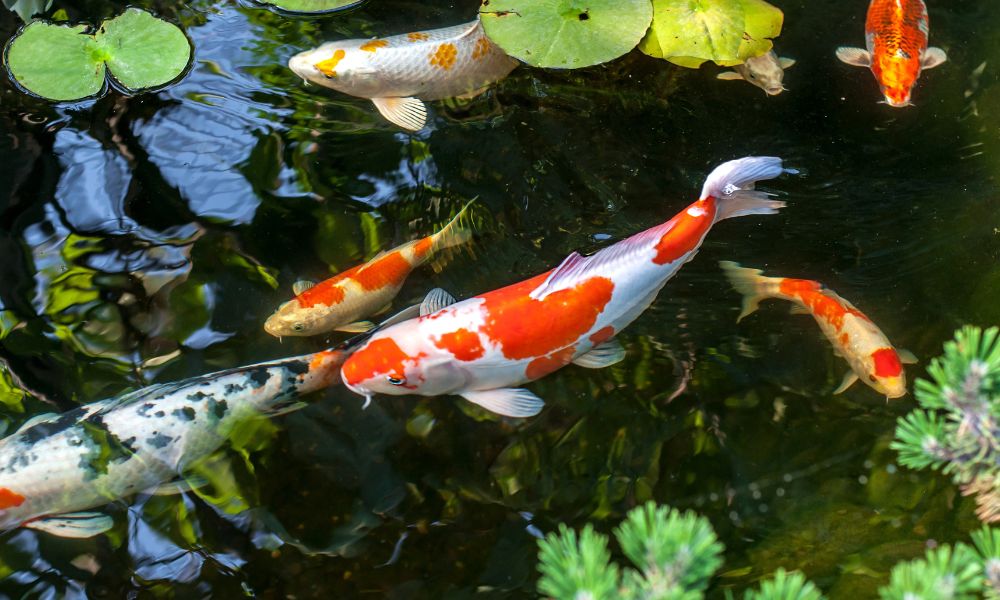Wintertime can harm your backyard fishpond. When temperatures drop below freezing, your pond water becomes solid ice that expands, causing stress and potential damage to the rest of your structure. Plus, this ice water is very hazardous to the delicate layout of your pump system and general plumbing.
If you live in a colder region, you must winterize and decommission your water fixture for the season. You can practice these protocols yourself or simply hire professional help for convenience. Regardless, it’s essential that you know how to maintain your fish pond properly throughout the winter.
Drain & Clean
Before beginning the draining process, safely relocate the aquatic life and remove your pond netting—if applicable. This helps clear out most of the trapped leaves from the fall season. Next, remove all the remaining water from the pump and plumbing system—not your pond’s water supply—by using the relief valve or siphon-to-drain method.
By completely emptying your water pump system, you eliminate the chance of internal freezing, expansion, and subsequent damage. This is a similar process used when winterizing irrigation plumbing systems, so it is a proven method for safe winterization.
Remember, do not drain your pond’s water supply. Instead, install a re-circulating pump on your top shelf to properly oxygenate the water and support aquatic life. Additionally, this oxygenator helps retain a hole in the surface of your pond water, eliminating the risk of it completely freezing over. Lastly, safely remove, clean, and store your filter equipment and dispose of any remaining debris in your pond.
Help From Bacteria
Certain warmer climates can still support aquatic life during the winter thanks to cold-water bacteria. These products contain specific bacteria that eat nitrates, excess phosphate, ammonia, sludge, and other organic matter, ensuring cleaner water supplies for your fish. As a bonus, the improved pond water condition improves your re-circulating pump performance.
However, you should rehome your fish for the winter if your region experiences temperatures below freezing. If the temperatures drop below 32 degrees Fahrenheit, these cold-water bacteria become significantly less effective. Instead of the pond, you should set up suitable enclosures for your scaled friends in a sheltered location—a professional pond maintenance company can assist in this process!
Skimmer Maintenance
Water fixtures feature skimmer baskets that collect fallen debris—primarily leaves and other organic materials. Until the last leaf has fallen, you need to clean your skimmer basket every two to three days to remove accumulated objects. Throughout the winter, when no leaves are left, you only have to clean your skimmer basket every one to two weeks.
Understanding how to maintain your fish pond properly throughout the winter ensures your aquatic life and water fixture remain happy and healthy all year round! When in doubt—or for convenience—work with your pond installation company to set up annual servicing instead of attempting these tasks on your own.







